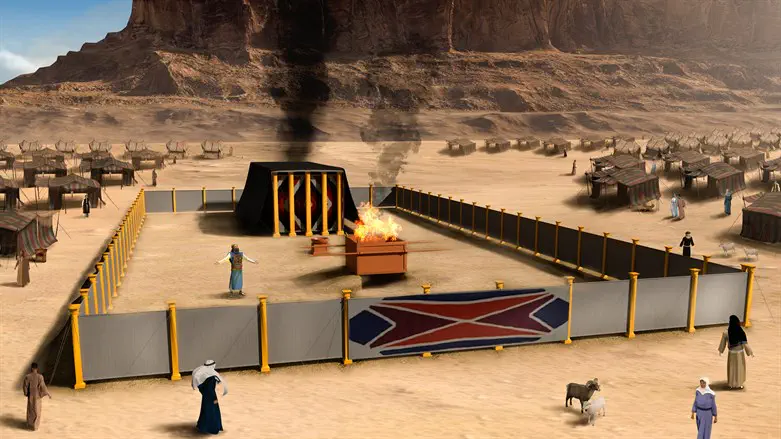
This week's Dvar Torah is by Mordechai Hadad, former Shaliach in Montreal (2016-17), currently working towards a degree in Psychology and Education
Before the parsha speaks about the inaugural offerings brought to the Mishkan, it introduces mitzvot that help raise the holiness of the camp. This commences with the commandment of sending the impure:
Command the children of Israel to banish from the camp all those afflicted with tzara'ath or with a male discharge, and all those unclean by the dead. Bamidbar (5:2)
The parsha continues with the laws of acts of treachery against God, sotah and nazir, and leads into the inauguration with Birkat Kohanim.
On a simple level, the connection between the holiness of the camp and the inauguration of the Mishkan makes sense. “Clean up” the camp before the unveiling of Hashem’s dwelling among us, and wrap it up with a bracha for the nation. This is likely the idea behind the placement of the commandments at this point in the parsha. However, based on the Gemara (Gittin 60a-b), the only one of these mitzvot to actually be commanded on the inauguration day was that of sending out the impure.
Eight parshiot were said on that day, seven of which were concerned with the Mishkan itself. Only this commandment dealt with the status of the camp. Why then was the commandment to send the impure out of the camp said specifically on this day?
Harav Moshe Cohen, the rabbi of Maaon, says that the importance of the commandment here is to show that although the shechina will from now on be residing in the Mishkan, the camp of Israel is still holy. This was crucial to clarify to Bnei Yisrael specifically on inauguration day – that the shechina is not leaving them to be contained in a building, but that their continued holiness of the camp is an important part of maintaining the Mishkan.
Parshat Naso specifically connects the holiness of the camp with purity. With our nationwide impure status and our lack of ability to bring korbanot or identify tzarat, it would seem that there is no practical relevance to this commandment today. A more relevant angle is offered in Parshat Ki Tetzei, which discusses holiness of the camp in connection to the level of hygiene and modesty worthy of a Jewish encampment during war. This comes to teach us that holiness of the camp extends far beyond the aspect of purity.
This message is especially important today when we unfortunately do not have a physical place of dwelling for Hashem among us. We need to remember that the most consistent dwelling that Hashem has on earth is our camp. After many years of exile, the past century has seen the reestablishment of the “camp of Bnei Yisrael” with Jews coming from all over the world back home to Israel. With this reestablishment comes tremendous responsibility - we need to remember that Hashem’s shechina is residing among us and take an active part in upholding the holiness of our camp.
comments: mjhadad18@gmail.com
Torah MiTzion stands in the forefront of the battle for the future of the Jewish people in the Diaspora, offering religious-Zionist Torah scholarship to Jewish communities throughout the world and strengthening the bond between the Jewish people in the Diaspora and in Israel via the study of Torah.